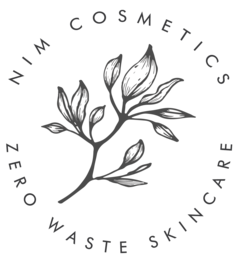In recent years, there has been a growing demand for ethical products, including clothing, food, and beauty products, among others. Ethical products are defined by their commitments to social, environmental, and animal welfare standards, which often require additional costs and investments in sustainable and responsible production processes. As a result, ethical products often come with a higher price tag compared to their non-ethical counterparts. In this blog post, we will explore the reasons why ethical products are more expensive.
1. Fair Wages and Labor Practices
One of the most significant reasons for the higher cost of ethical products is the fair wages and labor practices that are integral to ethical manufacturing processes. Ethically-produced goods require fairly paid employees that work in safe conditions with reasonable working hours. Ethical manufacturers strive to ensure that their workers have access to healthcare, education, and benefits. These commitments often come with additional costs, which are passed on to the consumers.
2. Sustainable Production and Materials
Ethical production processes often include sustainable practices that prioritize the health of the planet and its natural resources. These sustainable practices can include the use of organic, recycled, or locally sourced materials, as well as eco-friendly production techniques like energy-efficient machinery, zero-waste production, and minimal packaging. While these practices are essential to maintaining environmental integrity, they often require additional costs and investments in sustainable technologies, which increase the overall production cost.
3. Third-Party Certifications
To ensure that ethical products meet the standards of their claims, many ethical manufacturers pursue independent third-party certifications. These certifications assess and verify that the product complies with specific ethical and sustainability criteria, such as Fairtrade, Organic, or B Corp Certification. Third-party certification is a rigorous and expensive process, which often adds to the costs of the final product.
4. Small-Scale Production
Ethical manufacturers typically produce goods on a smaller scale than their non-ethical counterparts. This is because they prioritize quality over quantity and emphasize the importance of doing things the right way over doing things quickly. Small-scale production means that ethical manufacturers cannot take advantage of economies of scale to reduce the costs of production, which results in a higher price for the final product.
5. Transparent Supply Chains
Ethical manufacturers invest significant efforts in maintaining transparent supply chains. This transparency allows them to trace the origin of their materials and ensure that the production processes do not exploit or harm people, animals, or the environment. Maintaining a transparent supply chain can be challenging and requires additional costs in research, training, and monitoring.
In conclusion, ethical products are more expensive because the manufacturing processes prioritize fair wages, sustainable practices, third-party certifications, small-scale production, and transparent supply chains. Ethical manufacturers view their products as more than just commodities; they prioritize responsible and sustainable practices that value the well-being of all involved stakeholders across the supply chain. While the costs of these practices increase the price of ethical products, they represent a long-term investment in a better future for everyone.
